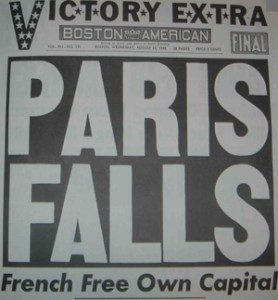
I didn’t initially post
this piece I wrote for National Review about the outcome of the French election here because I figured you’d probably had it with reading my views about this election. I’ve been writing about it non-stop for weeks, and I do know it’s not the only story in the world.
But yesterday, when I saw
JcTPatriot’s post, and the discussion it prompted, I felt compelled to weigh in one more time, because the issues involved here are, I think, genuinely important. I understand full well that there are many articles and news stories out there competing for your attention today, and that it’s a lot to ask to say, “Please give me another hour to make my case.” I wouldn’t ask it if I didn’t think what happened here has a significance that goes beyond France.
The piece I wrote for National Review is short, and will literally take only two minutes to read. Here’s the key paragraph:
For those of us who feared Le Pen would do well enough to claim a moral victory, the relief was immense, and any American with his head screwed on straight should share in it. Le Pen’s most memorable line in last Wednesday’s debate may have been, “France will be led by a woman. It will be me or Mrs. Merkel,” but in truth, France under Le Pen would have been led by a man, and that man would have been Vladimir Putin. As has been widely reported, Le Pen is in hock to the Kremlin, which funded her campaign. During one of her visits to Moscow, Le Pen explained her views to Kommersant: “The economic crisis gives us the opportunity to turn our back on the United States and turn to Russia.” That many Americans found this fact irrelevant when asking themselves whether Le Pen’s victory would be in their interests reflects a new and strange species of geopolitical masochism.
I discussed the last-minute attack on Macron’s campaign in that piece, and the effect it may have had on the total vote outcome. When I filed the piece, it was too soon to say for sure who was behind it. It’s not too soon to say anymore.
It was Russia:
The head of America’s National Security Agency said Tuesday that Russia was behind the 11th-hour hack of French President-elect Emmanuel Macron’s campaign team, and that US officials had informed France a cyber-attack was underway.
Irrespective of any other question about the candidates and what they stand for, this part is simple. Russia is our adversary. We all wish this were not so: At the end of the Cold War, there wasn’t an American alive who hoped for a return to a hostile relationship with Russia or its people. We can argue about whether the US bears part of the responsibility for the deterioration of US-Russian relations. We can argue about whether the greatest threat to our security comes from Russia, China, North Korea, a disparate collection of Islamic terrorist organizations and states, or from ourselves. These are legitimate debates. I argue that we bear very little of the responsibility for the deterioration of our relationship with Russia, and that indeed, it is the greatest threat to our security, and my views are anything but unorthodox. They’re shared throughout our defense establishment. Secretary of Defense Mattis, for example, when asked about the greatest threats confronting the United States, responded thus:
I would consider the principal threats to start with Russia. And it would certainly include any nations that are looking to intimidate nations around their periphery, regional nations nearby them, whether it be with weapons of mass destruction or I would call it unusual, unorthodox means of intimidating them.
In 2016, Deborah James, who was at the time Secretary of the Air Force,
put it this way:
Russia is the No. 1 threat to the United States. We have a number of threats that we’re dealing with, but Russia could be, because of the nuclear aspect, an existential threat to the United States.”
Chairman of the Joint Chiefs of Staff Joseph Dunford shares this view:
[He] told the conference that Russia’s goal was to counter NATO, undermine its credibility, and limit the ability of the US military to project power around the world.
“They are operating with a frequency and in places that we haven’t seen for decades,” he said, adding that the buildup should be viewed in the context of its actions in Ukraine, Crimea, and Syria, where Russia has already stepped up air attacks on eastern Aleppo.
I’m noting this not because I want to make a cheap argumentum ad verecundiam, but to stress that if you hold otherwise, you’d best have some strong arguments on your side. These are not frivolous men and women who’ve never given this problem a moment’s thought.
That said, I accept that reasonable people may and do disagree about the extent of the threat. Let’s leave those debates to one side for now, because one thing isn’t disputable among reasonable people: Russia is a major adversary. The Putin regime poses a danger to the United States and its allies. It wishes us ill, holds our values in contempt, and pursues policies designed to cause us harm.
It’s true that the Russian economy is no powerhouse, and true as well Russia has a host of internal problems that make its aspiration to dominate Europe seem preposterous. I assume we all agree that Russia should be getting its own house in order, not threatening its neighbors. But no matter how logical that seems to us and no matter what we’d prefer, the world’s the way it is, not the way we want it to be, and this is the way it is: Russia aspires to dominate Europe, the Middle East and Central Asia. We can’t pretend this isn’t so, even if we’re talking about a country with a GDP the size of Italy’s.* Russia isn’t Italy; it’s a deadly, hostile, dysfunctional empire with firepower sufficient to obliterate the United States. Its land-based cruise missiles are deployed in direct violation of the INF Treaty, and they’re targeting Europe. The very real threat it constitutes is why US troops have been pouring into Poland. It was reasonable, not hyperbolic, for commander Meelis Kiili, the leader of Estonia’s paramilitary forces, to call Russia “a threat to Western civilisation.”
(*Parenthetically: It’s become commonplace to the point of cliché to point out that Russia’s GDP is the size of Italy’s. I’m not sure why this impresses people. Italy isn’t a poor country. In nominal GDP, Italy’s economy is the eighth-largest in the world. Given its small population — 60 million — it’s a fantastically wealthy country. Russia’s economy ties Italy’s for the eighth-largest spot — or it did, I think it dropped a notch or two this year on the nominal GDP list — so it’s not too bankrupt to cause trouble. What’s more, its long-term business strategy, so to speak, relies on invading its neighbors. So this shouldn’t console anyone.)
I don’t need to rehearse the rest of the case. You’ve heard it. Russia systematically intimidates its neighbors, annexed Crimea by force, invaded Ukraine, Moldova, and Georgia. It poured into the void in the Middle East created by Obama’s retreat, moving into the eastern Mediterranean, the Levant, Turkey, Iran, and the Persian Gulf. It now so profoundly constricts American freedom of action that in places where once the United States enjoyed near-total domination of the skies, we’re unable to operate. Southern Turkey, Cyprus, most of Israel, and northern Jordan are now in range of Russian S-400s. We face area denial. Our traditional allies, including Israel, have been forced to suck up to Moscow –and so have we.
No matter who you think our greatest adversary is, you can’t view this as a salutary development. It’s a massive obstacle to the pursuit of any foreign policy save, “Russia calls the shots, everywhere.” Now, if that’s the foreign policy you endorse, I’ll grant you that hoping for Marine Le Pen’s victory is consistent with it, but “internal consistency” is the only merit of that view.
Russia wanted control over France, which has been an American ally since 1778. France is significant: It’s the world’s sixth-largest economy, a nuclear power, the heart of Europe. Marine Le Pen vowed to pull France out of NATO, that is, to cease being our ally. She openly promised instead to pursue an alliance with Russia. No secret about this, it’s not a rumor, it was part of her party platform.
Her campaign was financed by Russia. (That’s in French, but Google Translate will do a good job.) Her response, when confronted with accusations that Russia had purchased influence over her party, was remarkable: The insinuations, she said, were “outrageous and injurious,” but not for the reasons you’d think. She was injured and outraged by the suggestion the National Front could be bought and sold. Not so, she insisted. The National Front was pro-Russia in principle.
As far as I’m concerned, this is open-and-shut. I just can’t understand the view of any American who thinks otherwise. If it’s a truism of romantic life that you
shouldn’t hang out where you’re not wanted, it’s just as much a truism of geopolitics. Even if I believed Marine Le Pen would in some way be good for France, I could not, as an American, view her election with anything but horror. When I look at my passport, I see it clearly says American. That tells me where my loyalties lie, as it should.
It seems some Americans believe we’re so powerful, so untouchable, so divorced from the rest of the world that we can afford to shrug whimsically at the prospect of flushing the Franco-American alliance down the toilet. “No big deal. Why do we need allies?” Some go a step further: They think we’re so powerful, so untouchable, so divorced from the rest of the world that we can afford to shrug whimsically at the prospect of France entering an alliance with our enemy. “No big deal, we can handle that, too.” Well, perhaps we can: It’s true that we’re a big and powerful country. But why would we want to make our lives so much harder? And to put so many more of them at risk?
Why, especially, when her opponent promised to
strengthen our alliance and formally committed, in his platform, to raising France’s defense budget
to meet its NATO spending commitments? (In French, but
here’s the key passage.) Why, when her opponent not only took a strong, principled stance against Russia’s aggression toward our allies, but did so at the risk of inviting a full-on Russian attack on his campaign? Why, when clearly we could
use allies who are shrewd enough (unlike some politicians I could mention) to
fight off an attack like that and win?
Even if Le Pen had been committed to the Franco-American Alliance — and she was not — why would we support a politician whose economic program would have destroyed the French economy, leaving it unable, even if it were willing, to meet its NATO spending commitments?
If you don’t believe she would have destroyed the economy, how exactly do you think economies work?
The Fondation Concorde is a right-leaning, pro-business think tank, devoted (in my translation), to advancing “economic decentralization, focussing on
small and medium-sized enterprises and industry, economic competitiveness, and job creation, while demanding a lean state.” (All things American conservatives used to agree about, once.) In a report titled, The Economic Plans of the National Front, or how to Accelerate the Collapse of the French Economy, they wrote (my translation, again):
The National Front proposes to pursue the worst aspects of the past thirty years [of France’s] economic policy: excessive spending in the public sphere, increased taxation for private actors, and denying the reality of global economic competition. Its policies would result in higher taxation on the jewels of French industry and the strangling of SMEs with fees and charges. … Large companies will relocate their businesses abroad [to avoid confiscatory taxation] … [and their policies would] further strengthen the rigidity of the labor market and accelerate our economy’s loss of competitiveness … causing French companies to lose international market share and unemployment to soar.
The idea that France can protect its industries by raising tariffs, they wrote, “is an illusion.”
These would be rejected by the WTO and the European Union and would lead to retaliatory measures that would reduce our exports … There would then be a double problem: companies would confront the dismantlement of their supply chains and the loss of their export markets, leading to the dramatic impoverishment seen in other autarkic economic models: Cuba, North Korea, Iran, or Argentina.
They brought up the “crushing failure” of the Argentine experience, and they were drawing the right analogy, because this is exactly what she proposed to replicate. France would see “sharp devaluation combined with economic protectionism, currency collapse, an explosion of consumer prices, rising commodity prices, rising deficit and debt, rising unemployment and ultimately the decline in French GDP.” That’s exactly right. That’s what France was just spared.
There has never in history been a successful example of a country doing what she proposed to do. There have been many examples of countries destroyed by just the policies she proposed. Even if you believed it mattered not one whit whether a France under Le Pen would be an ally or an adversary, embracing a politician whose plans would result in the economic immiseration of millions is immoral. The enthusiasm for Le Pen is a right-wing version of radical chic. The clueless celebrities who slobber over Hugo Chávez as the man who freed Venezuela from Yankee imperialism and speaks truth to neoliberal power met their opposite number in the Americans who slobbered over Le Pen as the woman who, I guess, would have freed France from Yankee imperialism and spoken truth to neoliberal power, but frankly, where this is concerned, I can no longer tell the difference between the so-called right and the so-called left.
The article to which JcTPatriot linked in Gatestone was so mendacious and intellectually dishonest that I have no idea where even to start. I feel embarrassed that such a thing was published in an outlet for which I once wrote. All I can advise you to do is follow the links. They will, at least, take you to the articles in which Macron purportedly says what the author took out of context, distorted, mistranslated, or invented. Thanks to Google Translate, you can see what he really said — or didn’t.
This post will turn into a book of its own if I go through every claim in the article in question, but I’ll choose one to show you what I mean. “French art? I never met it!”
Je voyais les tracts que certains camarades distribuaient à l’entrée du building, très gentiment, pour vous expliquer toutes les raisons pour lesquelles j’étais un odieux personnage, ils disaient “Emmanuel Macron, il ne croit pas à la culture française”. Bon, c’est défendu, généralement, par des gens qui ont oublié de lire, qui pensent que la culture française relève, je cite le programme d’un de mes opposants, de l’art français. J’ai dit : “Il n’y a pas une culture française.” Mais c’est la vérité, ou alors que ceux qui disent cela aillent me dire si Picasso, Chagall et quelques autres sont dans la culture française, dans leur définition. Parce que moi, l’art français je ne l’ai jamais vu. Il y a des cultures, et il y a bien une culture qui est en France. Nous avons notre culture, notre littérature, notre peinture, nos valeurs qui vont avec, notre langue! — qui est ce qui nous tient. Et c’est la fierté de ce pays! Mais cette culture s’est toujours vécue avec des racines profondes mais comme éminemment ouverte, généreuse, accueillant les talents de l’étranger. Et qu’est-ce qui a fait la littérature française, la peinture française, la musique française, la danse française ? La capacité à faire émerger des génies de notre pays mais à, chaque fois, d’agréger des talents de l’étranger.
Watch the speech, and the body language. Now, this is what he’s saying, in English. “There are many debates on the subject of French culture, and I see that some comrades are distributing leaflets outside the building, very kindly, to explain all the reasons I’m an odious personality. They say, ‘Emmanuel Macron, he doesn’t believe in French culture.’ So I’ll take advantage of the moment to put this in parentheses.”
He was speaking in London, to French expatriates, about how he hoped to create a climate in France that valued success: one such that the French would no longer have to go to London to flourish. He was saying he wanted to create a France to which they could return to be “entrepreneurs, researchers, teachers, in France.” His comment really was parenthetical, and this is the whole of it:
They say, “Emmanuel Macron, he doesn’t believe in French culture” … Okay, this is said, generally, by people who have forgotten how to read. Who think French culture consists — I’m citing the platform of one of my opponents — of “French art.” I said, “There is not one French culture.” But it’s the truth, isn’t it? Or, the people who say this are going to tell me whether Picasso, Chagall, and there are a few others, are part of French culture, according to their definition. Because for me, “French art,” I’ve never seen it, there are cultures [he said “des” cultures, i.e., “more than one single thing”] that are in France, there is certainly a culture that’s in France. We have our culture, our literature, our painting, our values, which go with our language! — and which keep us together. And which are the pride of our country! But this culture has always lived with deep roots of being eminently open, generous, welcoming of talent from abroad. And what made French literature, French painting, French music, French dance? The capacity to make the genius of our country emerge, and in every case, to aggregate talent from abroad.
He goes on to say (it’s not in that video), “J’aime plus que tout notre langue, notre culture, ce qui fait ce trésor, mais en même temps, elle a toujours été ouverte. Elle s’est toujours construite dans la capacité à en agréger d’autres, à faire venir les talents d’ailleurs. A faire que des jeunes ou moins jeunes qui venaient de partout ailleurs en Europe, ou dans le reste du monde, devenaient constitutifs de la culture française.” In other words, “I above all love our language, our culture, that which we must treasure and at the same time, always be open. It’s always been built out of our ability to gather in others, to attract talent from everywhere. To make young people — or less young — who come from all over Europe, or the rest of the world, become constituent parts of French culture.”
I won’t go through every word of the rest of that article, but I hope that example suffices to suggest how dishonest it is to write that Macron said, “French art? I never met it!” — and leave it at that. It should make you wonder, deeply, about the author’s motivation. What Macron said was true, and should not have been especially controversial; you’d have to know nothing about French culture to deny that many of its most luminous specimens were not born in France. He didn’t choose Picasso and Chagall as random examples. Picasso was born in Spain. (As was former Prime Minister Manuel Valls — of whom Jean-Marie Le Pen infamously said, “Valls has been French for 30 years. I’ve been French for 1,000 years. Has this immigrant really changed?”) Chagall, of course, was a Belarusian Jew — and the relevance of this, in the context of the National Front, is obvious.
I’ve written quite a bit, and I know I’ve taken up more of your time than you planned to assign to thinking about an election that’s already over. I didn’t mean to write so much, but I got angry when I read that lamentable piece by Yves Mamou, and felt it called for a response. And I’m still angry, but my case is not finished. So if you’d give me just a bit more time, here are two more articles, both of which I wrote prior to the election. They may help you understand why this makes me angry.
The National Front is not a normal political party in any way. Ranking members of normal French parties in the 21st century do not say things like this: “I consider that from a technical standpoint it is impossible—and I stress, impossible—to use it [Zyklon B] in mass exterminations.” Thus said Jean-François Jalkh, who was appointed interim party president only weeks ago, and almost as quickly forced to stand down when a journalist at La Croix republished these and related remarks. He’d offered them, apparently totally unprompted, to a doctoral student who kept both the notes and the audio recording of the interview.
The party is rotten with this kind of sentiment. As the election nears, multiple stories like this confirm that Le Pen’s campaign to soften the party’s image has been just that: an effort to soften its
image. Consider Frédéric Chatillon and Axel Loustau, for example, “
ubiquitous” members of her inner circle; they have been among her closest friends since she was a student. The “de-demonization” of the party didn’t go so far as to boot them (notable, because it
did go so far as to boot Marine Le Pen’s own father). As Marine Le Pen’s former advisor, Aymeric Chauprade—who has fallen out with the party for “moral and political” reasons—
put it to the New York Times: “
They are anti-Semites, nostalgic for the Third Reich, violently anticapitalist, with a hatred for democracy…. People think they’re marginal. But in fact, I discovered, she protects them. She supports them. They are at the heart of everything.”
This is borne out in court documents; it has been
captured on hidden cameras, and interview after interview substantiates it. They don’t even try all that hard to hide it. …
And when you’ve finished that, if you’re still unsure, please read this piece,
which I published here. You’ll have to read the whole piece to understand why, exactly, this is specifically connected to the election that took place, and why I took another day to return to the subject, even though the election is over:
Some families were sent to internment camps near Paris, where the children, mostly aged between two and twelve, were separated from their families by the French police, drenched in water, and bludgeoned. Their parents were sent directly to Auschwitz.
Others were taken to the Vel d’Hiv. The few lavatories there were sealed, lest children escape through the windows. The children were left, alone, for five days in the unbearable heat, with only the scarce rations of food and water brought to them by the Quakers and the Red Cross.
From there, they were sent to the internment camps of Drancy, Beaune-la-Rolande and Pithiviers. Then in August, the children were sent, alone — on French rail cars, by the French government — to Auschwitz. The youngest child sent to Auschwitz, under Laval’s orders, was only 18 months old. Laval,
according to the historian Julian Jackson, told an American diplomat that he was “happy” to get rid of them.
Not one returned. All were exterminated.
Then perhaps you need one more piece of information to understand why, when I see Americans doubt that the defeat of Le Pen was a good thing, I want to vomit. That additional piece of information is my father’s birthday. You don’t need to know the specific date. But if you know he was born in 1942, you can put it together.
It was only by the grace of God — or luck, perhaps, because no one knows where the hell God was, back then — that he’s alive. Some other child became the footnote known to historians as “the youngest child.” But it was only because my grandparents, somehow, managed to get an exit visa. Most Jews didn’t.
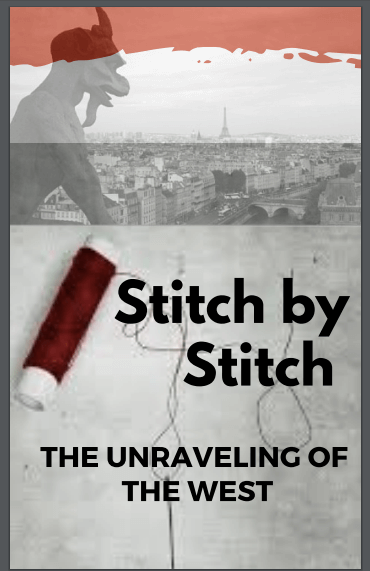 I’m sorry to worry you: I’ve seen all the messages asking where I’ve been, all the speculation about my absence, all the posts clamoring for my return, and — what’s that, you say? You haven’t written any?
I’m sorry to worry you: I’ve seen all the messages asking where I’ve been, all the speculation about my absence, all the posts clamoring for my return, and — what’s that, you say? You haven’t written any?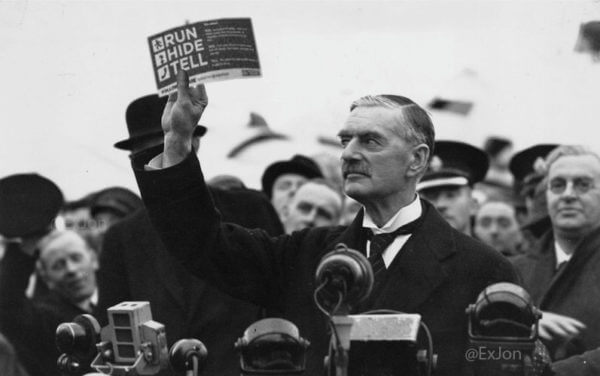
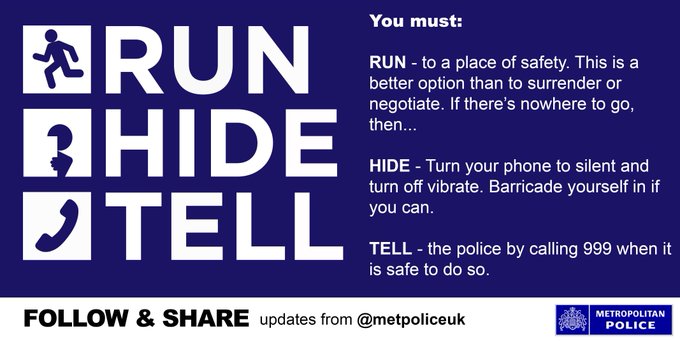


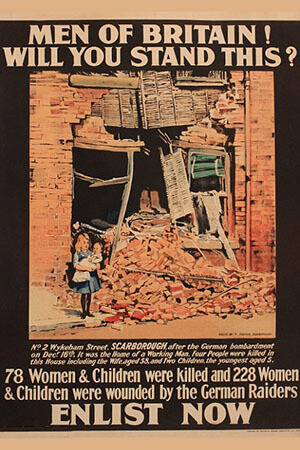
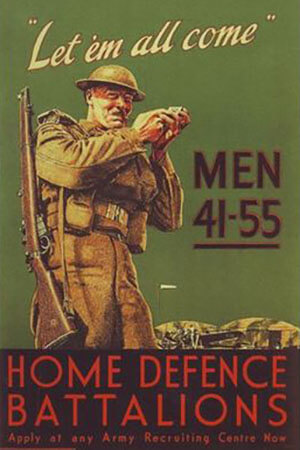
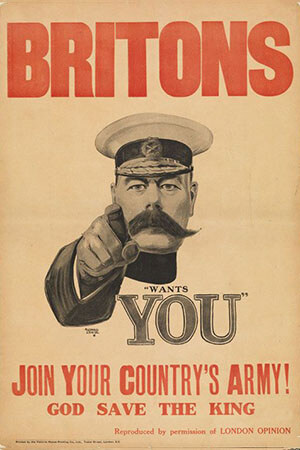
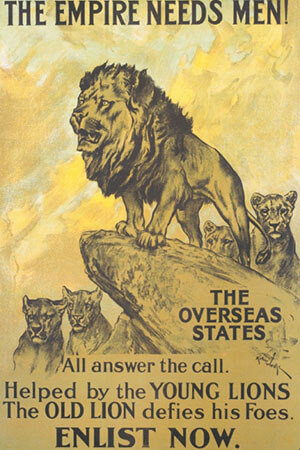
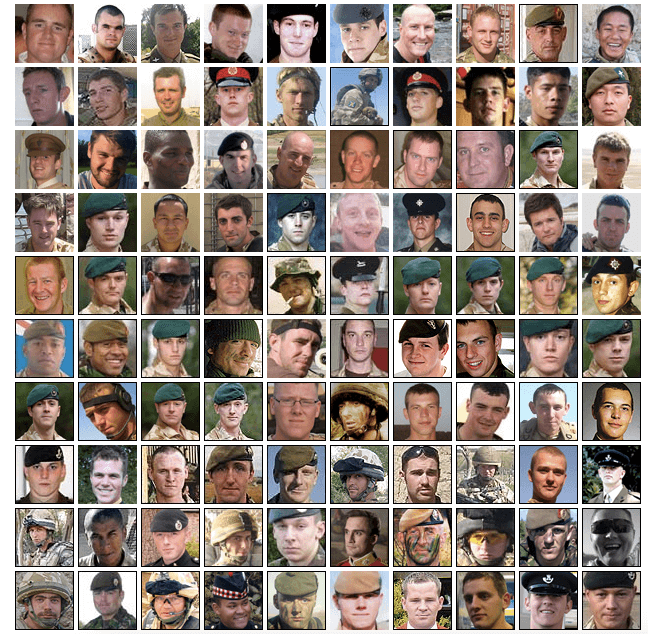
 I didn’t initially post
I didn’t initially post